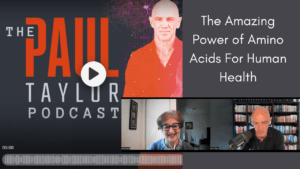by Vanita Dahia
The complexity of mental health is frequently an intimidating dynamic process that keeps many patients and health practitioners on their toes. An appreciation of the underlying causative factors that occur with mental health disturbances can lend itself to targeting assessment options.
Experiencing anxiety, stress or depression?
Current therapies and medications not working effectively?
Want to know your assessment and natural treatment options?
Mental Health, neuro-chemistry and neuroplasticity have become burgeoning markets in an integrative practice today perhaps due to greater public awareness of mental health concerns or the innovative science behind neuro-transmission pathways, nutrient and genetic constructs.
In the neurological system, hormones, adrenals, nutrients and genetics are synergistic with neurotransmitters – modulating their production, signalling and metabolism. Because of this complex interplay, testing the clinical triggers and neurotransmitters together is the ideal way to generate a more precise assessment.
Functional assessments gives you a more thorough evaluation of the systems that interact to govern key facets of mental health including mood, stress, anxiety, memory, and depression. The lab variants will offer a diagnostic edge allowing for zeroing on targeted therapies best suited individually for you.
How to Test for Mental Health
The traditional DSM (diagnostic and statistical manual) of and air based assessments is an effective, accredited method of diagnosis from stress to video game addiction.
Stress is usually the precursor to neurotransmitter imbalances. Stress in turn affects the entire physiology by altering sex hormones thyroid hormones and pancreatic function (endocrine function) the value of the microbiome in the gut has now been shown to play a major role in mental health, colloquially termed the gut brain axis.
Assess your stress, anxiety or depression with Mood Stress Questionnaire.
After all, most of happy hormone called serotonin and relaxing neurotransmitter called GABA is made predominantly in the gut. Testing for neurotransmitters in a DIY urine sample can reveal the balance of excitatory and inhibitory neurotransmitters.
The power of Nutrients in mental health has been well published by Dr Carl Pfeiffer.
- Stress is always the precursor to mental health challenges. Test your Cortisol and DHEA levels
- The balance if excitatory and inhibitory neurotrasmitters can be established by the measure of Seotonin, GABA,Glutamate, PEA, Dopamine, Noradrenaline and Adrenaline. In addition , measure amino acids and neurotransmitter metabolites
- Pfeiffer profile identifies the balalnce of Copper, Zinc and Ceruloplasmin with methylation genetics
- Methylation status identifies Folate and SAMe sufficiency with methylation gene markers like MTHFR
- Histamine, Diamine Oxidase, HNMT plays a direct role in methylation, menatl health, digestive capacity and methylation
- Amino acids are needed for synthesis of neurotransmitters. An imbalance in Amino Acids the entire body physiology
- Neurogenomic genetic assessment identifies genetic polymorphisms
- Pharmacogenomic Mental Health identifies prescritions suited for you based on genetics.
Which test is right for your Mental Health?
I always start with identifying the ballance of inhibitory and excitatory neurotransmitters as it reveals so many clues as to why your brain feels the way it does. If stress is an underlying drive, measure the degree of adrnal dysfunction with Cortisol and DHEA.
If mental health is associated with the gut, consider the microbiome assessment. In other words, when feeling wired and tired, the stomach may feel like it\’s in a knot. After all, leaky gut leads to a leaky brain.
If mental health runs in the family, assess the gentic polymorphisms and establish how you can change the expression fo the genes with Nutrigenomics.
Testing for Mental Health provides an insight of the functional lab test options available for identifying the chemistry of mental health.
Consult with a health practitioner who can tailor a natural management approach using targeted nutritional and herbal medicine to manage and optimise mental health naturally.






